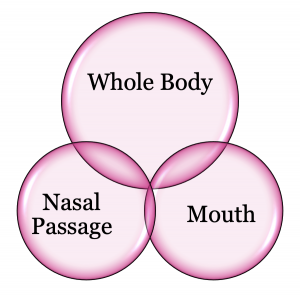How Can We Help?
Ritual Bath (Ghusl)
Purity is one of the most essential aspects of Islam. It is a precursor to worship, and without it, ritual prayer (salat) is invalid. When a woman exits from either menstruation (hayd) or post-natal bleeding (nifas), she must perform ghusl so she can return to her obligatory worship.
The Fiqh of It
Obligatory (Fard) Acts of Ghusl
It is an obligation to wash the entire body once, including all those areas where water can reach without undue difficulty. This means ensuring that water reaches the inside of the entire mouth and nasal passage (up to the soft bone).
Water must also reach behind the ear and piercings. A woman can move her earrings and nose ring, allowing water to pass through. If the hair of her head is not braided, she must wet all the hair and roots. If her hair is braided, the water should reach all the roots; she does not need to open the braids.
Sunnah Acts of Ghusl
- Make intention to purify oneself from impurity.
- Wash both hands, including the wrists.
- Wash the private parts.
- Wash any impurities on the body.
- Perform ablution (wudu).
- Pour water over the head – 3x.
- Pour water over the right shoulder – 3x.
- Pour water over the left shoulder – 3x.


